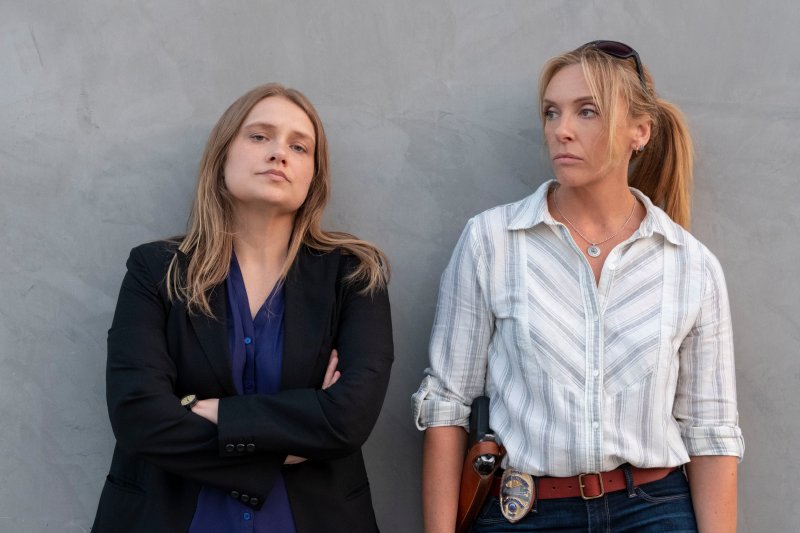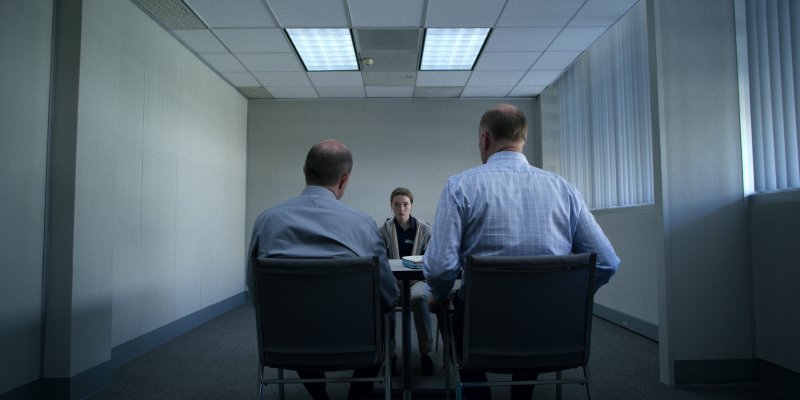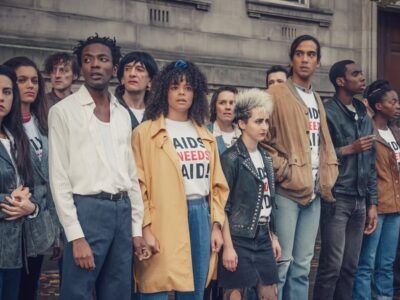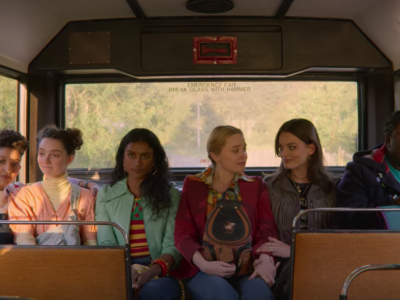Netflix’s feminist crime-drama, Unbelievable, is full of quiet power

Chloe unpicks the artful unfolding of this compelling series
Netflix crime drama ‘Unbelievable’ is a heart-breaking and gripping communication of an uncomfortable truth. Starring Toni Collette, Merritt Wever, and Kaitlyn Dever, it effectively shows us that it only takes one early mistreatment of a rape accusation in order for it to spiral into tragic injustice. This mistreatment can affect all aspects of a victim’s life, from employment, to family ties.
The audience is equipped with an awareness of the victims’ truths from the beginning.
Based on the 2015 news article ‘An Unbelievable Story of Rape’ written by T. Christian Miller and Ken Armstrong, the drama follows the true account of a series of rapes in Washington State and Colorado. The series remains wholly accurate to the experiences of the women, striving to be non-exploitative of their cases. By telling the story primarily through the perspective of the victims, their experiences are not manipulated for dramatic effect, giving the series its quiet but profound power. The audience is equipped with an awareness of the victims’ truths from the beginning, allowing an authentic and sympathetic comprehension of their treatment by the justice system.

Marie’s experience tells us about the tremendous flaws in the earliest stages of reporting whereby the victim is forced to repeat their account of the incident over and over again to different authority figures.
Services like the police often fail to provide an appropriate safety net for those who report sexual assault. Marie’s experience tells us about the tremendous flaws in the earliest stages of reporting whereby the victim is forced to repeat their account of the incident over and over again to different authority figures. During this process the subject may easily mix up small details, given the severity of the trauma, causing the police to hold on to gaps and inconsistencies in the story as a route to case dismissal. The series also demonstrates the various ways that individuals deal with trauma, highlighting the pervasive ignorance to this within the system set up to support them. While Marie finds it easier to push the assault to the back of her mind to forget, Amber, the victim with a parallel case in another city, finds that she copes by remembering every detail in order to gain some sense of control over the situation. This indicates that the justice system is not set up to be comprehensive enough in its method of handling reports. Despite the fact that both Marie and Amber’s cases are practically identical in detail, the contrast between both investigations demonstrates the difference in approach that leads either to the outcome of a solved case or to the victim being chewed up and spat out by the justice system there to support them.
When attention turns to Amber’s case we see the series move into a crime-drama genre subversion that puts a feminist spin on the traditional tropes.
When attention turns to Amber’s case we see the series move into a crime-drama genre subversion that puts a feminist spin on the traditional tropes. Whilst Marie’s treatment is systematic and unfeeling, Amber is treated far more sensitively. The primary difference is the detectives that handle Amber’s case have an intuitive concern about her emotional wellbeing. Although it is impossible to ignore the polarity determined by the detectives that take on Marie’s case being male and those of Amber’s being female, the series does well to convey that it is of course not only women that hold the ability to work on a sexual assault case successfully, with attention given to a rounded and positive portrayal of husbands and fathers throughout the series. However, to create a robust subversion of crime-drama tropes that are typically demeaning of female roles, one of the most apt ways to portray the positive outcomes of creating room for a female perspective concerning sexual assault cases is through a female detective partnership like the one played by Karen and Grace.
When a situation feels too horrific to comprehend, and threatens our sense of safety within the world, we may naturally look for ways to avoid its truth.
The series strikes also strikes a chord that runs far deeper than the flaws of the police justice system. It touches upon the very nature of humans when faced with difficult facts. Marie reflects that ‘if the truth is inconvenient they don’t believe it,’ pointing out a crucial problem with the way society often deals with sexual assault, commonly known as ‘victim blaming’. When a situation feels too horrific to comprehend, and threatens our sense of safety within the world, we may naturally look for ways to avoid its truth. Marie experiences this first-hand when those closest to her quickly believe the more convenient story held by authorial figures: that Marie had made the whole thing up.
Unbelievable carefully disrupts the all too comfortable crime-drama genre with a well overdue demonstration of why women retract claims of assault, often never even making them at all. The award-winning author and survivor of sexual assault, Bri Lee, affirms that the storyline of Unbelievable is an accurate portrayal, reflecting that: ‘It feels like the most serious, awful thing done to you was not serious enough.’ Finally there is a series which acknowledges this societal failure in its most honest form, lending hope for a reformation of our future approach.
Have you seen Unbelievable? What did you think? Leave your thoughts in the comments.

About Rife





